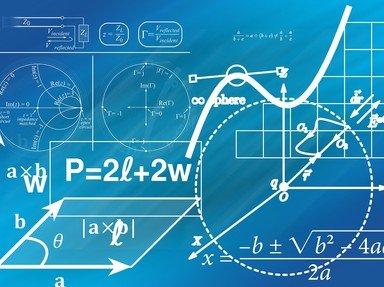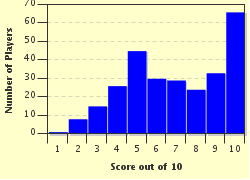Quiz Answer Key and Fun Facts
1. Let's start at the beginning. What is meant by the term 'transcendental numbers'?
2. The first transcendental number to be discovered and used was pi. Was pi the first number to be proven to be transcendental?
3. Is the square root of 2 (sqrt2) a transcendental number?
4. Is Napier's number (represented by the letter e) transcendental?
5. Is Champernowne's number (0.123456789101112...) transcendental?
6. Which of the following is a representation of the transcendental number known eponymously as Hilbert's number?
7. Joseph Liouville showed that the Liouville constant is transcendental. A decimal representation of this number starts 0.1100010000000...; in what place to the right of the decimal point will the next non-zero digit appear? (Hint: they are seen in places 1, 2, 6 - these numbers start a well-known sequence)
8. Which of the following is NOT a transcendental number? (Hint: It takes three to tango.)
9. There are a lot of other numbers in frequent use (at least, frequent if you are still studying mathematics). Do you remember trigonometric functions (sine, cosine, tangent, etc.) and logarithms (only if you are old enough to remember the days of log tables and slide rules!)? Which of the following is always a transcendental number?
10. The numbers pi and e are both transcendental. What about their sum (pi+e) and their product (pi*e)?
Source: Author
looney_tunes
This quiz was reviewed by FunTrivia editor
crisw before going online.
Any errors found in FunTrivia content are routinely corrected through our feedback system.


